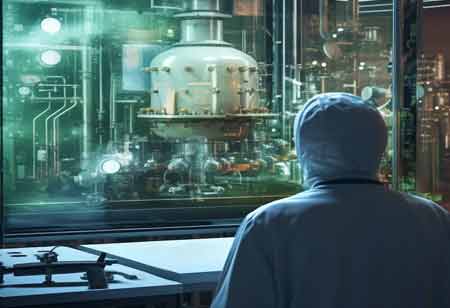FREMONT, CA: Chemical engineering plays a crucial role in pharmaceuticals, petrochemicals, and food production, and it is constantly evolving. Recent technological advancements have paved the way for new opportunities focused on innovation, sustainability, and increased efficiency. As the field continues to develop, it embraces new methods and practices that enhance production processes and address environmental challenges, ensuring a more sustainable future for various sectors reliant on chemical engineering.
AI and Machine Learning
AI and machine learning (ML) algorithms have recently gained traction in chemical engineering. They are instrumental in optimizing chemical processes, reducing costs, and ensuring environmental compliance. Examples include predictive maintenance for equipment, AI-driven simulations for reactor designs, and using ML to test chemical formulations rapidly. These technologies significantly shorten product development cycles and enhance safety protocols.
3D Printing
3D printing, or additive manufacturing, is reshaping chemical engineering by enabling the creation of complex structures, such as catalysts, membranes, and specialized equipment. Researchers use this technology to optimize reaction surfaces and create lab-on-a-chip devices for faster chemical analyses. The customization potential ensures efficiency and reduced waste in various chemical processes.
Advanced Catalysis and Reaction Engineering
Advanced catalysis focuses on developing novel catalyst materials and reaction mechanisms to improve yield and efficiency. Breakthroughs in nano-catalysts and bio-catalysts are notable, allowing for cleaner, more sustainable reactions. Coupled with computational modeling, these technologies help substantially reduce the carbon footprint of chemical operations like polymer production and fuel synthesis.
Sustainable and Green Technologies
Sustainability has emerged as a core priority in chemical engineering, driving the development of green technologies that minimize environmental impact and enhance resource efficiency. Innovations in this field focus on leveraging renewable resources, such as biomass while advancing processes like carbon capture and utilization (CCU). Recent advancements include electrochemical reactors for green hydrogen production, methane-to-methanol conversion techniques, and bio-based feedstocks in polymer manufacturing. These innovations contribute to environmental sustainability and present economic advantages by optimizing waste material utilization and reducing dependence on fossil-based resources.
Process Intensification
Process intensification refers to redesigning chemical processes to make them more compact and efficient. Microreactors and intensified heat and mass transfer units are examples of innovations in this area. This technology supports a shift towards more sustainable practices by minimizing energy consumption and maximizing reaction efficiency.
Big Data Analytics
Chemical engineers are increasingly relying on big data analytics to improve decision-making. Large datasets from modern chemical plants offer insights into process efficiencies, failure modes, and resource utilization. Advanced analytics tools help monitor real-time data, predictive analysis, and compliance checks, ensuring industries keep up with growing demands while adhering to strict standards.
Biotechnology and Bioengineering
Biotechnology integrates biological processes with chemical engineering to create breakthroughs in biofuels, bioplastics, and pharmaceuticals. Recent focus areas include engineered enzymes for specific reactions and bioreactors designed for large-scale production. Investment in synthetic biology is also propelling the field by creating microbes designed to produce industrial chemicals.
Digital Transformation and Automation
The chemical engineering industry rapidly embraces robotics and automation for repetitive tasks while adopting cloud-based platforms for collaborative designs. Remote monitoring and the Industrial Internet of Things (IIoT) ensure plant-floor operations run more effectively. Digital twins, or virtual replicas of physical processes, are increasingly used to simulate and optimize real-time performance.
Emerging technologies in chemical engineering are transforming the field to become more efficient, innovative, and environmentally conscious. These innovations align industries with sustainable practices, from AI-driven optimizations to biotechnological advancements. As the field continues to evolve, overcoming adoption challenges will be critical in realizing the full potential of these technologies.

